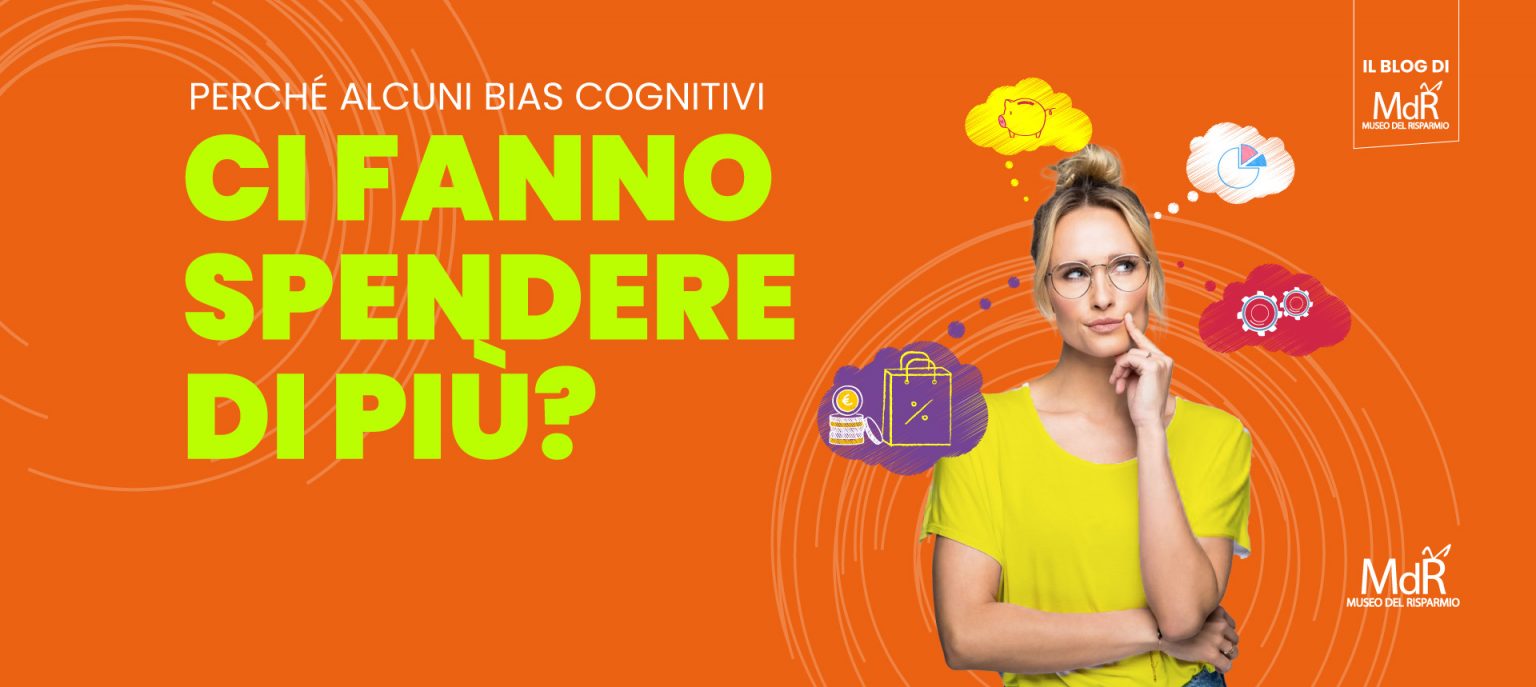
When talking about money management, we often encounter examples of heuristics, unconscious simplifications, which push us towards behaviors that are not entirely rational. With money, we are guided by instinct rather than by the brain and this is because, in part, we tend not to delve into the topic, due to the anxiety that the word money alone generates. Knowing cognitive biases, or the shortcuts of our brain, is essential to avoid falling into traps. However, let’s not fool ourselves, it is not easy and for this reason many economists believe it is important that policy makers gently accompany certain personal choices, which otherwise we would make in a direction contrary to our own interests and the common good.
Cognitive biases: what they are and how they work
Many unconscious mechanisms are often caused by cognitive biases, mental automatisms that generate beliefs and make quick decisions. They are real mind traps that lead us to make evaluation errors, showing us a distorted version of reality.
The human brain activates these “shortcuts” automatically in many situations, for example when it has to make choices quickly and is overloaded with information.
In some cases, cognitive biases can influence our financial decisions, leading us to spend more than we would like (and should). As behavioral economics has shown, many economic decisions are not made rationally: our brain conditions these choices under the pressure of cognitive biases.
Let’s see three of them:
- Il The bias of mental accounting
Is it better to spend 200 euros received as a birthday present or 200 euros earned by working?
If the amount is always the same, why is the perception of that sum different? The cognitive bias that comes into play is that of mental accounting, or the tendency to divide money between various mental accounts, based on its origin and destination.
When this very common mechanism comes into play, we prefer to spend the amount received as a gift rather than the amount earned, as if the former represented an extra to our finances and not an integral part of them. This is even more true for inheritances.
- The confirmation bias
With the rise of e-commerce and online shops, online shopping has become an increasingly widespread practice. Online reviews help us choose the most valid product or service.
What happens in our mind when most of the reviews are negative, but we decide to buy anyway?
In this case, another cognitive bias comes into play, namely confirmation bias. This is a mechanism through which people tend to select information that supports their opinions, ignoring contrary information.
So, if we really want to buy a certain pair of shoes, despite many reviews being negative we might buy them anyway.
- Anchoring bias
Is the first impression what counts? With anchoring bias, yes!
It is a phenomenon that occurs when we remain “anchored” to the first information received, regarding a person, a situation or a product, without evaluating others.
If we apply this bias to the purchase of a product, we can say that the initial price plays a crucial role for our brain in the perception we will have of the value of the product itself.
Consequently, the first impression risks influencing our future purchases, leading us to overestimate or underestimate the actual value of the object we want to buy and to perhaps spend more than would be fair.
Can we avoid falling into these “tricks of the mind”?
Resisting compulsive purchases or the instinct to spend more is possible. To reflect on the possible conditioning we are victims of, listen to the seventh episode of our podcast “Mica solo Parole”!
March 27, 2024
